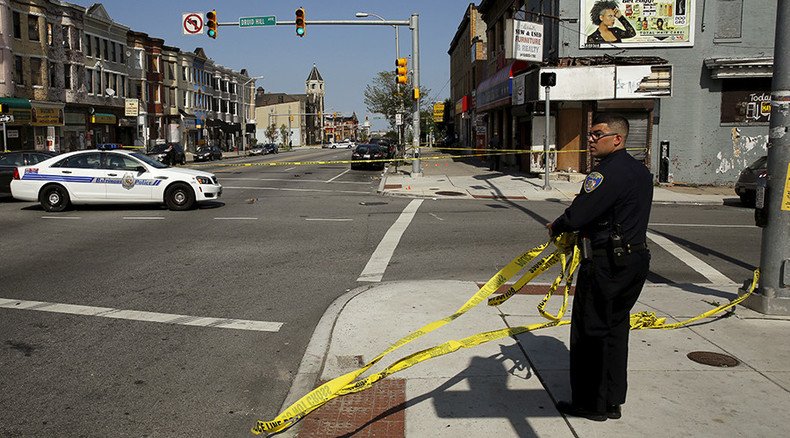Maryland first state in US to issue guidelines on police profiling

Maryland has become the first state to adopt rules against police profiling. Police will be banned from using race, religion, or sexual orientation as factors in making routine stops, and can’t stop everyone in a neighborhood when a crime is reported.
“Police do a dangerous, difficult job, and they do it well. But experience shows that improper profiling by police does terrible damage,” said Maryland Attorney General Brian Frosh while unveiling the new guidelines in a nine-page memorandum on Tuesday.
Under the rules, officers are banned from using race or ethnicity in making decisions during routine operations, investigations, and traffic stops. The guidelines also include a ban on profiling based on national origin, identity, disability, or religion.
ACLU's Holness: Thanks AG @BrianFrosh for making MD first to adopt DOJ guidance against discriminatory profiling. pic.twitter.com/jDh4wfYs9U
— ACLU of Maryland (@ACLU_MD) August 25, 2015Law enforcement may use personal characteristics only if they have “credible information” that such characteristics are “directly relevant” to the investigation of a crime.
“They can still act on bona fide leaders and bona fide intelligence. They can do great police work, but you can’t just stop anyone of a certain race or a certain ethnicity,” Frosh said, according to WJZ News.
The guidelines came with other specific examples. After a report of a serious crime, police can’t question every suspect of a certain race in a neighborhood or stop people on vague grounds for suspicious behavior. In a controversial case earlier this year, officers arrested a Baltimore man named Freddie Gray because he had run away on seeing them. He later died in police custody, sparking riots in the city.
LA police to pay $725,000 to racial profiling victims http://t.co/LccVc8tNi1pic.twitter.com/QbiSzv4QGU
— RT America (@RT_America) April 30, 2015The new rules, Frosh said, were inspired by a similar guidance document issued by the Department of Justice in December 2014, which former Attorney General Eric Holder asked states to adopt.
Holder’s guidelines were in response to national protests and debate over police treatment of black men and women in cities across the US, such as Baltimore, Ferguson, and New York. They also followed a succession of scandals regarding civil rights violations by police departments from Albuquerque, New Mexico to Cleveland, Ohio and Newark, New Jersey.
Frosh said the guidelines will help “repair the frayed relationship between police and many in the community by making mutual respect the norm in everyday police encounters.”
Holder promises to end racial profiling ‘once and for all’ http://t.co/ORhWCWdW9upic.twitter.com/UyK3veOCFR
— RT America (@RT_America) December 3, 2014











